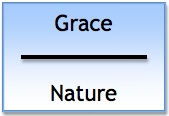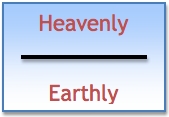One person regards one day above another, another regards every day alike. Each person must be fully convinced in his own mind.
Romans 14:5 NASB
When we think of convictions, what do we normally have in mind? Is it not true, that when we think of convictions, we think of it in terms of something we hold to be true, but do not necessarily have to stick to them? The convictions I am writing about are those things that reside in the grey areas of life. These are those things which are not specifically commanded or forbidden in the Bible. This could include things like drinking alcohol, smoking, eating of certain foods, keeping of certain days, listening to certain styles of music, Christian music vs secular music, hymns vs contemporary worship music, and many more. None of them is expressly forbidden in the Bible making it sin to practice them and none of them is expressly commanded making it a sin if we refrain from practising them.
So, how do we deal with these convictions? Should we demand everyone to be bound by them, or should we be more lenient with those of different persuasions?
Norman Geisler writes of the abuse when we "couch our own personal feelings in the more powerful language of divine injunctions."[1] This happens when we make our own convictions the rule others must follow. When we take our own convictions--those things that are not clearly commanded in Scripture--and make them laws for everybody else to follow, we turn into legalists. We must resist this turn of events!
Enter Romans 14!
Accept the weak in faith
Romans 14 starts off in verse 1 with an injunction to accept those who are weak in faith. Who are those that are weak in faith? The apostle Paul reveals to us who the weak in faith are. "One person has faith that he may eat all things, but he who is weak eats vegetables only." (v2 NASB) The ones who believe that we are not to eat certain foods are the ones Paul calls weak! However, we are not to regard the weak ones with contempt. On the other hand, those that are weak should also not judge those that regard all foods equally and who eat all foods. In this Paul addresses those who do not eat certain foods for religious reasons--the weak--and poses a question: "Who are you to judge the servant of another?" (v4 NASB)
Whenever we have certain convictions, we tend to want everybody else to have the same convictions we have. In this way we want them to become subservient to us. However, Christians are servants to God alone, and He is their Master. In these grey-area convictions, we have no right to judge the servants of God. "To his own master he stands or falls; and he will stand, for the Lord is able to make him stand." (v4) The Lord is the Master of the weak--those who do not eat--and He is the Master of the strong--those who do eat! We will all stand or fall by the strength of our Master. He will make us stand!
We all live to the Lord
Paul sets off in verse 5 dealing with our treatment of days. Is Paul attempting to resolve a dispute among keepers and non-keepers of days? When read in the larger context of Romans 14, it becomes clear that Paul was not trying to make one view stand above another view, but rather that the two different groups should exercise mutual respect.
Some feel that the Sabbath is not one of the days in consideration here but rather refers to the elaborate Jewish calendar of holy days. They feel that if the Sabbath were in view here, then it would have been more natural to say: "One person regards the Sabbath above the other days." If the dispute in Romans was about the Sabbath alone, then certainly this phrase would have been a more natural phrase for Paul to have used. However, Paul did not have to use the Sabbath as his example since it was not just the Sabbath that was in dispute. The keeping of days, any day, was in view here. Whether it was the Sabbath or any other day, some Roman Christians regarded these days above other days.
In Colossians Paul was more direct when he wrote: "[16] Therefore no one is to act as your judge in regard to food or drink or in respect to a festival or a new moon or a Sabbath day -- [17] things which are a mere shadow of what is to come; but the substance belongs to Christ." The way Paul wrote here, he wanted to make sure that all foods were included in his statement, and likewise all festivals, all new moons and finally all Sabbaths. Paul considered all of these as "a mere shadow of what is to come." Paul regarded Christ as the substance of all of these. Christ became the fulfilment of them ALL!
"The sum of Paul’s understanding is this: every Christian is free to keep whatever days he cares to keep as long as he does not impose them on others, though Paul himself feels it shows a certain lack of Christian maturity to impose such laws as a religious obligation on one’s self."[2]
Paul said it well when he wrote in Rom 14:6, "He who observes the day, observes it for the Lord, and he who eats, does so for the Lord, for he gives thanks to God; and he who eats not, for the Lord he does not eat, and gives thanks to God." (NASB) If we observe days or we do not observe days, it should not be to elevate either our own righteousness or our liberty in Christ. It should be done for the Lord and Him alone! If we are glorified for our observances, then we have missed the point. All glory should go to Christ! Our living and our dying should be unto the Lord (v7)!
Each one will give an account
Whether we judge others for eating or not observing days, or whether we hold those who do not eat and observe days in contempt, we will all come to "stand before the judgment seat of God." (v10) "Each one of us will give an account of himself to God." (v12)
What will we be judged on? It will certainly be by how we have treated others with different convictions than ours. If you believe that we should observe certain days, do you judge those who do not believe that we have to observe them? If you believe that all days are alike, do you hold those who observe days in contempt? Do you consider them as inferior Christians?
Do not be an obstacle
Are your convictions a stumbling block to other Christians? "Therefore let us not judge one another anymore, but rather determine this -- not to put an obstacle or a stumbling block in a brother's way." (v13 NASB) Is your freedom causing others to stumble in their walk with the Lord?
In verse 14 Paul wrote that he is convinced that nothing is unclean in itself. He is here moving ahead with his usage of food as his example. What is perhaps a difficult concept to understand is that of anyone "who thinks anything to be unclean, to him it is unclean." Paul is not expressing the attitude by so many today that sin is simply a matter of subjective opinion. In this passage Paul is not discussing behaviour that is clearly sinful in light of Scripture. He is writing about things in which Christians may justifiably differ. In matters such as these we should be guided by conscience.
How, in circumstances such as these, do we treat those that are weaker than us? "For if because of food your brother is hurt, you are no longer walking according to love." (v15 NASB) If you do not believe that there is anything wrong with having an alcoholic drink on occasion, then it would be wrong to hurt a brother that believes that we should not drink alcohol at all. In the presence of the weak, the strong should adjust their behaviour for the sake of the weak. If you do hurt a weak one, then it will cause that of which you think good, to be spoken of as evil. (v16) Freedom without responsibility can lead to evil results. Paul writes to us not to "tear down the work of God for the sake of food. All things indeed are clean, but they are evil for the man who eats and gives offense." (v20 NASB) It would be better to rather abstain from those things which will cause our weak brothers to stumble. (v21)
"THE STRONG ARE not wrong to think they have freedom to eat whatever they want. Rather, they are wrong for using that freedom without regard to the effect it may have on their weaker brothers and sisters--people for whom Christ died. The strong need a reordering of priorities, in which kingdom values take precedence over selfish interest and pleasure."[3]
The kingdom of God is not ratified in what we do or do not eat or drink. It is "righteousness and peace and joy in the Holy Spirit." (v17 NASB) When Paul uses the word righteousness in this context he is speaking of an ethical righteousness. It is behaviour pleasing to God.[4] When Christians can live among each other with such an ethical righteousness that takes into consideration the weaker Christians, they can live in peace with one another resulting in joy. "[18] For he who in this way serves Christ is acceptable to God and approved by men. [19] So then let us pursue the things which make for peace and the building up of one another." (Rom 14:18-19 NASB)
If you have convictions that, according to Paul, make you a strong believer (those who reckon all days alike and who eat anything), then you should rather not flaunt your freedoms, but keep it a matter between you and God. This does not mean that you should change your standards for the sake of the weak, but to adapt your standards for the sake of the weak in the presence of the weak. When you are away from the weak, then it would be a matter between you and God how you treat food and days.
Finally, the conscience in this regard can guard us from sin. If a person has doubts concerning something such as food and days, and has convictions about not eating or observing certain days and breaks those convictions, then it is regarded as sin. If you are not sure about something, rather stick with your conscience. If your faith is not strong enough to eat what you consider forbidden, then you will sin when you do eat. (v23).
Conclusion
The main consideration of Romans 14 is that we should respect those that have differing views than ours in things that are not regarded as direct commands from the Lord. Rather live in peace, than letting food and the observance of days destroy the household of faith!
End Notes
[1] Geisler, Norman L., Christian Ethics Options and Issues, Baker Books, Grand Rapids, MI, Thirteenth Printing, June 2001, p35.
[2] Wells, Tom & Zaspel, Fred, New Covenant Theology, New Covenant Media, Frederick, MD, 2002, p248.
[3] Moo, Douglas J., The NIV Application Commentary, Zondervan Publishing House, Grand Rapids, MI, 2000, p460.
[4] Ibid., p461.
Just thinking...










 We’re a family that enjoys Christmas. Every year we decorate the house with Christmas trees, tinsel, flashing lights, candles and all kinds of ornaments. This year is no different. The same can be said of my wife’s family. They also love decorating their houses. The only difference
We’re a family that enjoys Christmas. Every year we decorate the house with Christmas trees, tinsel, flashing lights, candles and all kinds of ornaments. This year is no different. The same can be said of my wife’s family. They also love decorating their houses. The only difference  Yeah, yeah, you claim to create a joyful environment of memories for your children to remember for years to come, but as a Christian you owe it to yourself and your children to create memories of Christ over Christmas time! It is easy to say that our children know that Christmas is about Christ and not Santa, but do you know it?
Yeah, yeah, you claim to create a joyful environment of memories for your children to remember for years to come, but as a Christian you owe it to yourself and your children to create memories of Christ over Christmas time! It is easy to say that our children know that Christmas is about Christ and not Santa, but do you know it?